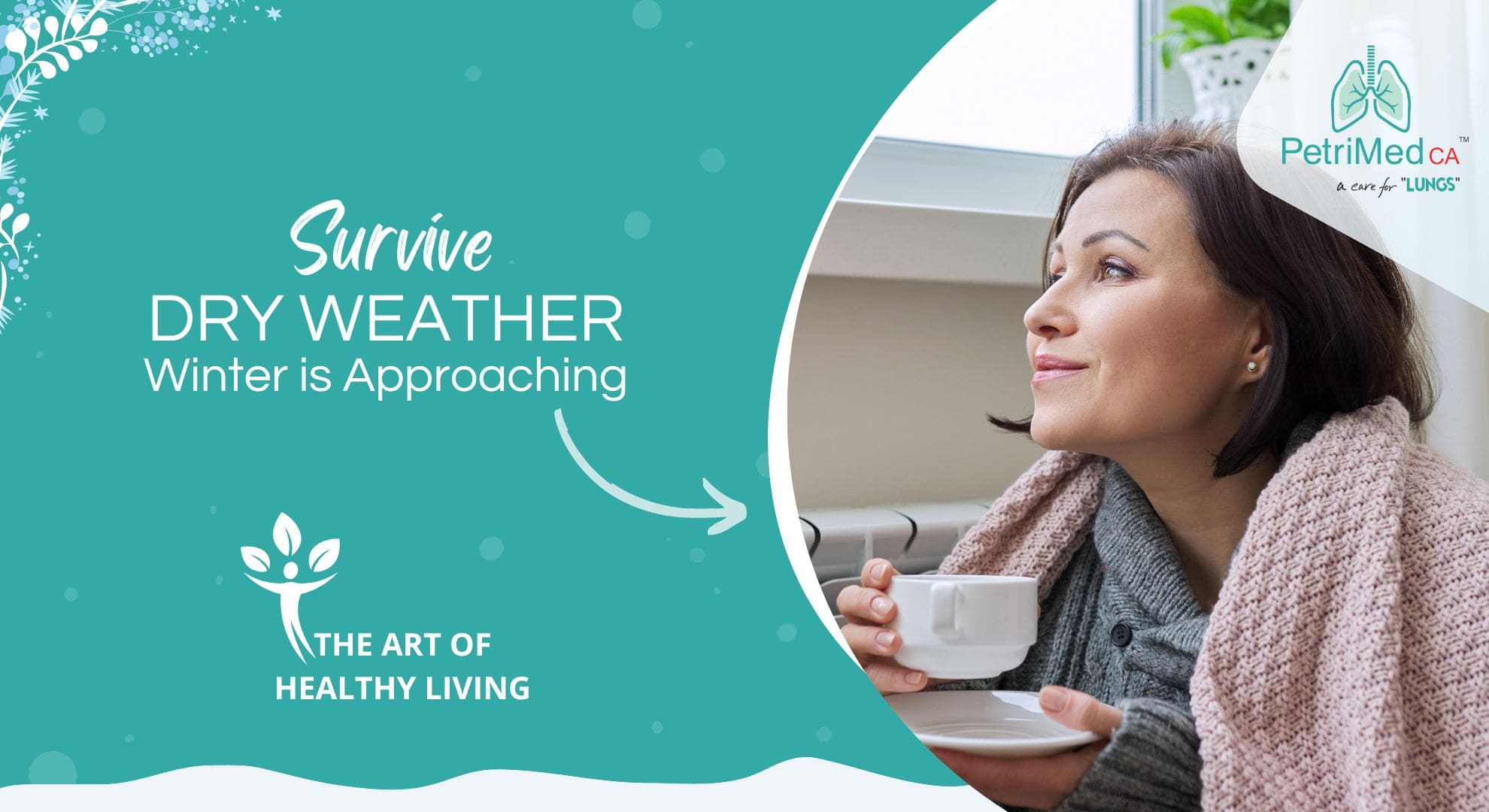Winter’s Approaching – Survive the Dry Weather
10 Nov 2022
Winter is the coldest season of the year in polar and temperate climates. It occurs after autumn and before spring. The tilt of Earth's axis causes seasons; winter occurs when a hemisphere is oriented away from the Sun. Different cultures define different dates as the start of winter, and some use a definition based on weather. One interesting aspect that needs to be kept in mind is that the seasons are opposite to each other for Northern and Southern hemispheres i.e. when it is Winter in the Northern it’s Summer in the Southern hemisphere and vice-versa.
Affect on humans:
People enjoying the winter weather. Humans are sensitive to winter cold, which compromises the body's ability to maintain both core and surface heat of the body. Slipping on icy surfaces is a common cause of winter injury. Other cold injuries include:
Hypothermia – Shivering, leading to uncoordinated movements and death.
Frostbite – Freezing of skin, leading to loss of feeling and damaged tissue.
Trench foot – Numbness, leading to damaged tissue and gangrene.
Chilblains – Capillary damage in digits can lead to more severe cold injuries.
Rates of influenza, COVID-19 and other respiratory diseases also increase during the winter.
Cold Effects:
Cold temperatures place physiological stresses on the body. The healthier and fitter we are, the easier it is for our body to cope with these stresses. Dressing properly is the key to being healthy in a cold climate. Avoiding undue stresses particularly if we are not seasonally accustomed to the cold is also important, especially for the very old, the very young and those with an underlying health condition all of whom should have the home heated to at least 18C (64F).
Eating well or losing weight - One of the best ways to stay warm in a cold climate is using the "inner furnace" to generate heat from within. While salad might be just the thing we want in the warmth of summer, come the colder months of the year, it's hearty stews, soups and comfort food that just doesn't do the same thing for our palate in warmer weather. This is our body's way of telling us that it needs more fuel to keep warm. If we can put up with constantly feeling cold, this is a possible way of losing weight.
Using layers to stay warm, - The layer principle of dressing should be used in cold weather. This doesn't mean simply lots of layers, but layers for particular purposes, a close- fitting base layer to wick away sweat, especially if there is any physical exertion taking place, insulating mid layers and a looser fitting wind or waterproof outer layer. Insulation can be provided by several thin layers rather than a single thick layer. This is a more effective way of staying warm as air (the real insulator) is trapped between as well as within the layers.
Am I cold because I feel cold? - How cold one can feel and how cold we are, are not as closely related as we may visualize. While uncontrollable shivering is under the effect of our subconscious and indicates a fall in the core temperature, how cold we feel is not a great indicator. Some people can tolerate the cold more than others largely based on observing the same sensations in a different way. We can train ourselves to be less affected by the cold, more on cold acclimation and acclimatization here.
As people get older, they can become less perceptive of cold temperatures, another reason the elderly is more prone to becoming hypothermic, they just don't notice their falling body temperature.
Feeling cold all the time is a common symptom for a number of medical conditions such as:
Anaemia - Caused by a lack of iron in the diet or an inability to make enough red
blood cells. If one is a female, of reproductive age and vegetarian it is even more
likely.
Hypothyroidism - Most often caused by an autoimmune disorder, most frequently in
women and in or approaching middle age.
Raynaud's disease - A situation where spasms in the arteries in the hands and feet
result in a lack of blood flow to the fingers and toes which go pale and numb.
Diabetes - one symptom of "diabetic nephropathy" the kidney damage resulting from
diabetes is a feeling of being cold all the time.
Anorexia - people with this eating disorder often feel cold all the time as the body tries to make any nutrition last, if possible, by generating less heat. Soft body hair often grows as a response to being cold as added insulation to counter the loss of naturally insulating body fat.
A constant feeling of being cold can be a sign of a more serious medical condition, if we really cannot ever get warm even in a warm place or long after coming in from the cold, we should contact a doctor. We are more likely to be indoors with other people and ventilation is likely to be worse than when it is warmer. The immune system is miserable to some degree by cold weather which particularly affects the upper respiratory tract which cools down when cold air is breathed in.
To avoid such situations we have a solution to know about it in detail keep reading!
